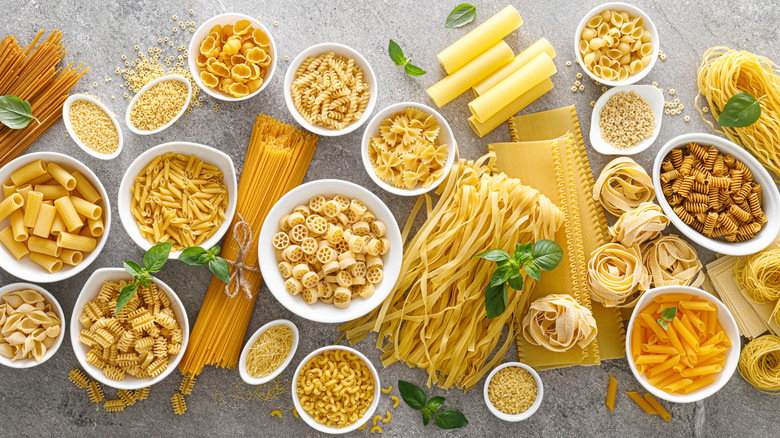Inflation Has Spurred Italians To Instigate A Pasta Boycott
The United States isn't the only country to face inflation over the past few years. Across the globe, many other countries are experiencing alarmingly steep price hikes for certain pantry staples. While the U.S. may soon see grocery prices slowly decline, Europe, in particular, is still seeing high inflation at grocery stores, which has led Italians to incite a pasta boycott.
According to The New York Times, pasta prices have risen 17% in Italy since 2022. General food prices throughout the European Union have also spiked at an average of 17% compared to the previous year.
To help combat inflation, Assoutenti, a consumer advocacy group, is calling for a nationwide pasta boycott starting June 22. The call for a pasta strike comes after the Italian government held a crisis meeting to discuss the matter. The strike is scheduled to last a week to try to stabilize the high pasta prices. Speaking to ABC News, the president of Assoutenti, Furio Truzzi, said, "The macaroni strike is to see if keeping pasta on the shelves will bring down the prices, in the great Anglo-Saxon tradition of boycotting goods."
Europe is facing widespread food inflation
The high costs Europe is experiencing for grocery staples, such as eggs, bread, and cheese, stem from the war in Ukraine, which has disrupted production. Per a report from Assoutenti (via CNN), the average price of a box of spaghetti, rigatoni, and penne pasta has jumped more than 25% in April compared to last year. The group argued these price hikes could be artificial and implemented to benefit pasta manufacturers while using the war in Ukraine as a guise.
Following the crisis meeting, the Italian government decided not to get involved in directly alleviating inflation. According to government officials, pasta producers have claimed the increased prices will be short-lived, which may be part of why no further action was taken. Instead, the government will continue to closely monitor grocery stores. However, other European countries have stepped in to control the outrageously high grocery prices by putting caps in place. For example, the French government struck a deal with grocery chains to reduce the cost of certain items for three months.
As pasta is a point of heritage and pride for many Italians, the call to boycott this staple ingredient represents a dedication to upholding their values regardless of the outcome.

